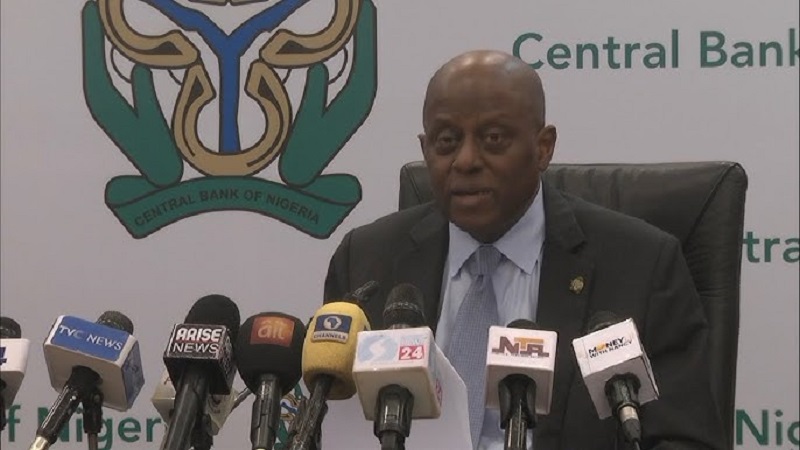Banking
Access Bank Risks Negative Pressures After Merger—Moody’s

By Dipo Olowookere
Renowned rating agency, Moody’s Investors Service, has warned that Access Bank may experience negative pressures on its capital and asset risk metrics as a result of its merger with Diamond Bank Plc.
This disclosure was made in a statement issued recently, where it announced that it was placing the ratings of the Nigerian lender under review for downgrade.
Moody’s said it was looking to lower the B2 long-term local currency deposit rating of Access Bank as well as its B3 long-term foreign currency deposit rating, its b2 Baseline Credit Assessment (BCA) and Adjusted BCA, its B1 long-term Counterparty Risk Rating (CRR) and its B1(cr) long-term Counterparty Risk Assessment (CRA).
However, Moody’s said it was placing Diamond Bank Plc’s Caa1 long-term deposit ratings, its caa3 BCA and Adjusted BCA, its Caa1 CRR and its Caa1(cr) CRA on review for upgrade.
In late 2018, Diamond Bank and Access Bank announced their intentions to merge to become a big and formidable entity.
In its statements, Moody’s said it was reviewing the banks’ ratings following the approval of their announced merger by the Securities and Exchange Commission (SEC) on January 18, 2019, after a preliminary approval of the transaction by the Central Bank of Nigeria (CBN) in December 2018.
“Access Bank’s ratings are placed on review for downgrade to reflect the potential negative pressures on its capital and asset risk metrics as a result of the merger, while Diamond Bank’s review for upgrade reflects the expected convergence of its creditworthiness and ratings with those of Access Bank upon completion of the transaction,” the agency said.
Moody’s explained that its primary driver underpinning the decision to initiate a review for downgrade of Access Bank’s ratings is the expected weakening of the bank’s solvency profile, driven by a lower tangible common equity (TCE) ratio amid higher asset risks.
It noted that Access Bank will acquire a large balance sheet (about N1.6 trillion as of September 2018), mainly consisting of net loans (about N730 billion), which will increase its risk weighted assets, while Diamond Bank’s undercapitalization will likely strain Access Bank’s TCE.
Moody’s expects Access Bank’s post-merger TCE ratio will decline to around 10%, reducing the bank’s loss absorbance buffers. The TCE would also decline below the median for global peers with b2 BCA.
In addition, the rating agency expects Access Bank’s asset risk to increase because of the additional risk assets it will acquire from Diamond Bank.
The rating agency views Diamond Bank’s risk management and underwriting procedures as weaker than those of Access Bank and therefore expects a higher formation of nonperforming loans (NPLs) from Diamond Bank’s loan book that Access Bank will acquire. The rating agency also expects substantial operational risks to be introduced by this sizeable acquisition.
For Diamond Bank, the review for upgrade is driven by the fact that upon completion of the merger, Diamond Bank’s assets, liabilities and undertakings will be assumed by Access Bank, a stronger entity, who will become the obligor of former Diamond Bank’s creditors.
The review on both banks will conclude upon the legal completion of the merger and will take stock of any new relevant information that might be available at that time.
For Access Bank, the rating agency says that the review for downgrade will focus on (1) the impact of a successful completion of the merger on Access Bank’s solvency ratios (asset risk and capital metrics), (2) the extent to which the merger will improve Access Bank’s profitability and funding and liquidity profiles, and (3) any integration challenges that will arise from onboarding Diamond Bank’s assets and liabilities and staff.
The review will assess how Access Bank will implement measures to increase its capital buffers to enable it to absorb new credit losses that will come from Diamond Bank’s loan book. The rating agency will assess any plans by Access Bank to reduce its risk assets and improve its capital upon completion of the merger.
The review will consider the impact of Diamond Bank’s loan book on Access Bank’s asset quality, including the amount of NPLs that Access Bank will inherit from Diamond Bank, and the level of provisions of the NPLs, although management indicated that a large portion of Diamond Bank’s current NPLs will be written off before conclusion of the transaction.
Moody’s said it will also assess the positive impact of Diamond Bank’s largely retail deposit book to Access Bank’s deposit structure and tenor.
As of September 2018, Access Bank would acquire N1.1 trillion customer deposits from Diamond Bank, providing it with deposits that are cheaper than its current cost of funding. The rating agency will consider the impact of possible revenue enhancements and any long-term cost savings, viewed against short-term restructuring costs.
The review will also take into consideration material implementation challenges associated with the acquisition of a large bank such as Diamond Bank.
As of September 2018, Diamond Bank’s total assets constituted 34% of Access Bank’s assets and Moody’s estimates that Diamond Bank’s total assets will contribute about 23% of merged entity total assets.
Access Bank will need to successfully integrate its newly acquired staff and IT and processing platforms while ensuring that the business does not suffer during the integration period. Moody’s recognizes Access Bank’s good track record in mergers and acquisitions.
Moody’s said the review for upgrade on Diamond Bank’s deposit ratings reflects the prospects that the rated deposits and liabilities of Diamond Bank will benefit from Access Bank’s stronger risk profile, and the rating agency will align Diamond Bank’s long-term deposit ratings with those of Access Bank. These are currently B2 on review for downgrade for local currency, and B3 on review for downgrade for foreign currency.
The rating agency will assess the extent to which Diamond Bank’s current solvency weaknesses that are a result of its high NPLs, low provisions and low capital will be addressed by the merger.
The rating agency will also consider the implication of the merger to Diamond Bank’s foreign currency liquidity, in light of the significant refinancing needs in the first half of 2019.
Moody’s said it will withdraw Diamond Bank’s ratings upon completion of the merger because Diamond Bank will cease to exist as a separate legal entity.
Banking
CBN Delists Non-Compliant Bureaux De Change Operators

By Adedapo Adesanya
The operating licences of all legacy Bureau De Change (BDC) operators who failed to meet the new licensing requirements have been revoked by the Central Bank of Nigeria (CBN).
This happened after the central bank streamlined the BDCs to 82 in order to sanitise the foreign exchange (FX) market in the country.
The latest development was revealed by the apex bank in its Frequently Asked Questions document on the current reform of the bureau de change, published on its website on Tuesday.
According to the document, the CBN has now enforced the final cutoff, declaring that any BDC that did not meet the requirements by the end of November is no longer recognised.
“The guidelines provided a transition timeline of six months from the effective date, 3 June 2024, with a deadline of 3 December 2024, for all existing BDCs to meet the requirement of the new Guidelines or lose their licence(s). However, the management of the CBN graciously extended this deadline by another six months, which ended 3 June 2025, to give ample time for as many legacy BDCs desirous of meeting the new requirements to do so.
“Consequently, any legacy BDC that failed to meet the requirements of the new Guidelines as of 30 November 2025 has ceased to be a BDC, as its licence no longer exists. Please visit the CBN website for the updated list of existing BDCs in Nigeria,” the apex bank said.
According to the CBN, before its latest decision, an extended compliance window was granted under the revised BDC Guidelines. Existing operators were initially given six months, June 3 to December 3, 2024, to satisfy the new regulatory conditions.
The CBN later granted an additional six-month extension, which elapsed on June 3, 2025, to allow more operators to align with the updated standards.
The new measures form part of broader efforts by the CBN to strengthen transparency, compliance, and stability within Nigeria’s foreign exchange market.
The new CBN regulatory framework for BDCs, introduced in February 2024, mandated BDC operators to meet higher capital requirements. Tier-1 operators are required to meet a minimum capital requirement of N2bn, while Tier-2 operators must meet N500m as MCR.
The bank added that it would continue to receive applications on its Licensing, Approval and Requests Portal from prospective promoters, and those that meet the criteria will be considered for a license.
However, the CBN said it reserves the right to discontinue the licensing of BDCs at any time.
Banking
O3 Capital to Unlock N95bn Festive Spending Boom With Blink Card

By Modupe Gbadeyanka
A non-bank credit card issuer, 03 Capital, has introduced a travel card designed to unlock the N95 billion festive spending boom in Nigeria.
The new initiative, known as the 03 Capital Blink Travel Card, promotes economic participation among returning Nigerians, expatriates, and tourists.
A statement from the financial technology (fintech) firm is available instantly to use at over 40 million merchants and ATMs nationwide.
The Blink Card, to be issued in both digital and physical form, is loaded with currency from any foreign bank card, converted to Naira, enabling transactions to be completed in the local currency.
The card offers tap-to-pay and cash withdrawals at over 40 million merchants and ATMs nationwide, making it the ideal solution for visitors to Nigeria.
It also avails Nigerians in the Diaspora to spend like locals when they return to their country of origin.
Payments for goods and services can be completed via the virtual Blink Card, linked to the O3Cards app. Funds can also be transferred instantly to all local banks and other financial institutions.
According to the World Bank, remittance inflows account for approximately 5.6 per cent of Nigeria’s gross domestic product (GDP), and the resultant spending power is unlocked when the Diaspora returns home for the festive period.
In December 2024, about N95 billion was injected into the Nigerian economy by inbound passengers – 90 per cent being diasporic Nigerians – spending on short-let accommodation and hotels, events and hospitality, nightlife and dining, and vehicle rentals. The launch of the Blink Card promises to spur this spending further, providing a significant boost to local businesses.
Blink Cards are available for collection at all Nigerian international airports, offering an immediate and hassle-free route to financial empowerment for people arriving in the country.
Blink Card carriers benefit from increased convenience, flexibility, and safety by not needing to carry large amounts of physical cash, while the ability to pre-load cards promotes smarter budgeting practices.
“We are excited to launch the Blink Card to promote greater economic participation among visitors to Nigeria.
“The card removes the needless friction and costs involved in legacy foreign exchange and cash payment processes, offering a quicker and more transparent option for spending in the country.
“As Nigerians begin travelling home for Christmas – combined with the regular traffic of arriving tourists, expatriates, and businesspeople – this is the perfect time to launch a solution catering to the financial needs of visitors, tapping into the seasonal spending boom which provides an annual lifeline for local economies and SMEs,” the chief executive of 03 Capital, Abimbola Pinheiro, stated.
Banking
Interswitch Champions Dialogue on Alternative Credit Scoring for Underserved

By Modupe Gbadeyanka
Technology leaders from across Nigeria’s digital finance ecosystem recently converged on Eko Convention Centre in Lagos to explore pathways for expanding credit access to underserved communities.
It platform for this was the 2025 Committee of e-Business Industry Heads (CeBIH) Annual Conference themed Reimagining Financial Inclusion through Cultural Shifts in Consumer Credit. Interswitch was a returning gold sponsor.
At a high-impact panel session titled Alternative Credit Scoring for the Underserved, moderated by Wunmi Ogunbiyi of the CeBIH Advisory Council, the Divisional Head of Product Management and Solution Delivery at Verve International, a subsidiary of Interswitch Group, Mr Ademola Adeniran, examined how alternative data and digital intelligence can unlock credit for millions excluded by conventional financial models.
“For us, this conversation goes beyond technology. It is about designing credit systems that truly reflect African realities.
“Millions transact daily outside traditional banking frameworks, and alternative credit scoring enables us to recognise that economic activity and responsibly convert it into access to finance.
“At Verve and Interswitch, we are committed to building the digital infrastructure that makes this inclusion scalable and sustainable,” Mr Adeniran stated.
Also, the Vice President for Sales and Account Management, Digital Infrastructure and Managed Services at Interswitch Systegra, Ms Robinta Aluyi, stressed the importance of African-led solutions in addressing the continent’s financial challenges, noting that sustainable progress must be rooted in local realities.
Interswitch’s strength, she said, lies in the fact that it was built on the continent, for the continent, with solutions designed to serve individuals, small businesses, enterprises, and government institutions across every layer of the payment value chain.
She also emphasized the company’s purpose-driven approach to building the infrastructure that powers Africa’s digital economy and enabling secure money movement on a scale.
“Interswitch helps people navigate their daily lives with greater ease. We make transactions flow safely and reliably. We do this by connecting banks, supporting secure and reliable payments, and strengthening the entire value chain of digital finance.
“Today, we hold a significant portion of the market, and that achievement reflects the deep trust our banking and fintech partners place in our platforms. We continue to deliver because the ecosystem has worked with us every step of the way,” Ms Aliyu said.
There were also contributions from Munachimso Duru, Head, Products, Partnership and Innovation, Afrigopay Financial Services Limited; Damola Giwa, Country Manager, Visa West Africa; Nike Kolawole, representing Aisha Abdullahi, Executive Director, Credit and Portfolio Management, CREDICORP; and Ifeanyi Chukuwekem, Head, Corporate Strategy Department, eTranzact, offering a broad industry perspective on the future of responsible credit delivery.
-

 Feature/OPED6 years ago
Feature/OPED6 years agoDavos was Different this year
-
Travel/Tourism9 years ago
Lagos Seals Western Lodge Hotel In Ikorodu
-

 Showbiz3 years ago
Showbiz3 years agoEstranged Lover Releases Videos of Empress Njamah Bathing
-

 Banking7 years ago
Banking7 years agoSort Codes of GTBank Branches in Nigeria
-

 Economy3 years ago
Economy3 years agoSubsidy Removal: CNG at N130 Per Litre Cheaper Than Petrol—IPMAN
-

 Banking3 years ago
Banking3 years agoFirst Bank Announces Planned Downtime
-

 Banking3 years ago
Banking3 years agoSort Codes of UBA Branches in Nigeria
-

 Sports3 years ago
Sports3 years agoHighest Paid Nigerian Footballer – How Much Do Nigerian Footballers Earn












